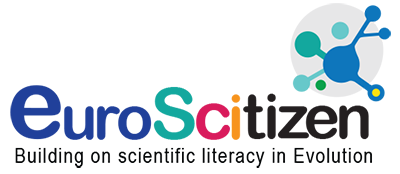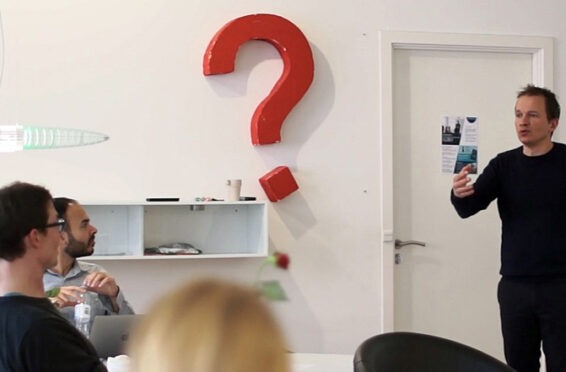EuroScitizen COST Action is organizing a short online Science-Media Training School directed at young journalists and young scientists. By joining these two groups we aim to improve the quality of the communication and understanding between scientists and media, thus contributing to the increase of the quality of science communication.
Our goal is to create a new wave of effective communication between scientists and journalists to demonstrate that by working together, those groups have power to create meaningful, understandable and open science messages for the public. We hope to provide a foundation for developing efficient links between the scientific and media communities counteracting the increase in fake news, the plummeting quality of journalistic outputs, in this complex, constantly changing landscape of scientific evidence. In fact we believe that this will empower the society and raise science awareness among people because knowledge has the power to improve our surroundings and quality of life.
This Training School will offer you hand-on practice and it will be conducted by three experienced trainers with scientific and media background. The Training School has three main objectives:
- Information sharing – to spread awareness across trainees who are interested in disseminating reliable scientific information in media, by providing them with skills and tools to communicate science effectively;
- Discussion – to exchange perspectives on topics from two different angles and two, not so different, attitudes represented by journalists and scientists, promoting the communication between these two groups;
- Community building – to help scientists and journalists find best ways of engaging in science communication together, bringing to it the best of the two worlds.
Similarly to the whole EuroScitizen Network – the training school will use evolution as one of the model scientific topics to work on. However, it will also extend its scope beyond evolutionary biology, exploring diverse ways science and media can interact, overcoming misunderstandings and tensions.
Join us! This is a great opportunity to meet an international team of inspiring people with an open mind and the one common goal. We want to communicate better information and stories in a way that will help society to better understand facts, data and science!
The trainers
Gil Costa – is a Scientific Designer and Illustrator with a background in Biology and a PhD in Neurosciences (University of Coimbra, 2015). He works to bridge the worlds of Science, Design and Arts, aiming at creating exciting new ways of telling scientific stories. He understands Science very accurately and has been exploring tools in multiple realms of visualization – Illustration, Graphic Design, Motion Design, and Data Visualization – to improve communication of Science to the general public and among scientific peers. Currently based between Lisbon and Brussels, Gil works with scientists and scientific institutions around the world, creating figures and journal covers, brochures and reports, exhibitions and videos, brands and identities.
Filipa Vala – is a science communicator with a PhD in Evolution and Ecology (University of Amsterdam, 2001), with over 10 years research experience. She was a researcher before working fulltime in science communication. Around 2006, she made a career move to science communication, motivated by a 3-month training period at the daily newspaper, Público. Since then, she worked in television and documentary, exhibitions and education programs, edited, authored and co-authored books, including, exhibition catalogues, a popularization of science book, and a species field-guide on a wide range of scientific topics. Filipa has written for several science communication exhibitions, including the national audience-record breaking The Evolution of Darwin (Fundação Calouste Gulbenkian, 2009).
(https://www.linkedin.com/in/filipa-vala-scicom-2021/)
Peter Hyldgård – is a Danish science journalist, editor and biologist with more than 20 years of experience in leading science journalism and communication projects. Specialized in new media and new ways to disseminate knowledge to the general public. Co-founder of Videnskab.dk and ScienceNordic.com, biggest online popular science media in Scandinavia. Head of the Danish Center for Science Communication. Peter also teaches science communication to academia and has written a handbook in science communication: “Share Your Research”.
(https://videnskab.dk/author/author/1848 & https://www.linkedin.com/in/peterhyldgaard/)
Program
30th of June
Gil Costa and Filipa Vala
— Visual and written storytelling for scicom
1st of June
Peter Hyldgård
— Science journalism
— Connecting to your audience
Funding
The training school will be held online and it will be free of charge for the trainees.
As this will be a training school involving practical activities, it is limited to 20 participants.
Who can apply?
Training is dedicated to students of journalism (in the last year of master’s studies or equally acceptable level) and science students (last year of master’s studies or equally acceptable level or every year of PhD studies). The school is also open to all stages of early science/journalism career, but preference will be given to students.
Note that the trainees must be engaged in an official research programme as a student, a PhD student or postdoctoral fellow, or can be employed by, or affiliated to, an institution, organisation or legal entity which has within its remit a clear association with performing research.
Application
Please register here: https://forms.gle/a2ciD55eA5c3gZ78A
Evaluation criteria
Applications will be evaluated based on the following criteria, and then ranked based on the sum of points.
| Evaluation criteria | Maximum evaluation points |
| Current or future level of involvement of the participant in the EuroScitizen WGs | 0.2 |
| Scientific/Technical contribution of the participant | 0.3 |
| Contribution to participant professional development and future projects | 0.3 |
| Balance (gender, career stage, country, participation of distinct institutions) | 0.2 |
Deadline for applications
Until the 18th of June

